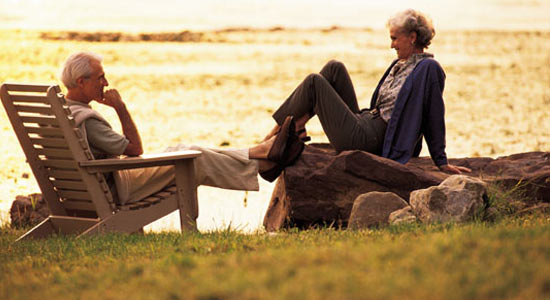As I discuss in The Baby Matrix, since the year 2000 more research has been conducted on those with no children than ever before. Studies have been conducted in many countries in a variety of areas. One area in which there has been a good deal of research involves one’s the elder years. Here are some interesting research highlights:
Some studies looked at how people ended up without children in their later years. A minority of women knew earlier in life that they did not want children, and they entered into their retirement years having never had them. However, for most men and women, studies tell us that reaching the decision to be childfree was a gradual process stemming from a series of choices made throughout the course of their lives.
Gunhild Hagestad at the Norwegian Social Research Institute and Vaughn Call of Brigham Young University looked at how “delayed transitions” can play an important role in ending up without children in old age. An example of a delayed transition is marrying later; delaying marriage can increase the chances a couple would not have kids. Another delayed transition could have to do with a career path; depending on where a career took a person, it could influence a delay in having children and eventually lead to not having them at all.
Much of the aging research in recent history has asked in one way or another, “Are the childless less emotionally healthy in their later years than people who had children?” Research findings suggest the answer is no. For example, a large study conducted by the University of South Florida looked at the lives of over 800 retirees and found no differences between adults without children and adults who were parents in terms of self-esteem, psychological well-being, and life satisfaction.
 Australian and Israeli researchers Julie Cwikel, Helen Gramotnev, and Christina Lee found similar results in their studies of women who had never married and had no children. They found no differences in emotional (or physical) health and that single, childfree women are just as likely as parents to have fulfilling later years. In fact, the researchers indicate that their “life experiences and opportunities prepare them for successful and productive old age.”
Australian and Israeli researchers Julie Cwikel, Helen Gramotnev, and Christina Lee found similar results in their studies of women who had never married and had no children. They found no differences in emotional (or physical) health and that single, childfree women are just as likely as parents to have fulfilling later years. In fact, the researchers indicate that their “life experiences and opportunities prepare them for successful and productive old age.”
Pearl Dykstra of the Hague Utrecht University in the Netherlands found the better predictor of life satisfaction in later years is marital history, not parental history. Research conducted at the Population Research Institute and Department of Sociology at Pennsylvania State University by Z. Zhang and M.D. Hayward also indicated that there is no support for the hypothesis that a life without parenthood means higher levels of depression for divorced, widowed, and never married older persons.
Contrary to some popular thinking, the sole factor of not having children did not predict loneliness or depression. Instead, when coupled with the absence of children, gender and marital status proved to be the better predictors of emotional well-being. In this study, women fared better than the men; divorced men with no children, widowed men with no children and men who had never married and had no children had higher rates of loneliness compared to women with the same background. Divorced and widowed men with no children also had higher levels of depression than divorced and widowed women with no children.
In another study, Regina Bures, Tanja Koropeckyj-Cox and Michael Loree at the University of Florida looked at depressive symptoms in middle-aged and older adults. They found that adults with no children had the lowest predicted levels of depression across all marital status groups.
This is just the tip of the research iceberg– Along with challenging pronatal assumptions about parenthood and reproduction, The Baby Matrix discusses what we know from research in the last 10+ years about the childfree choice and those who don’t make parenthood part of their lives. Check it out!



